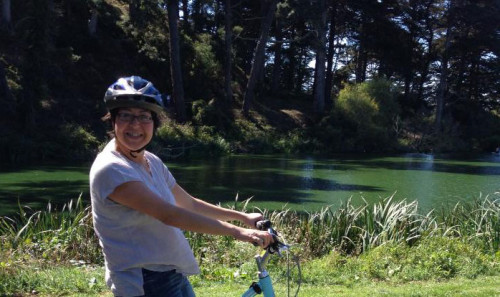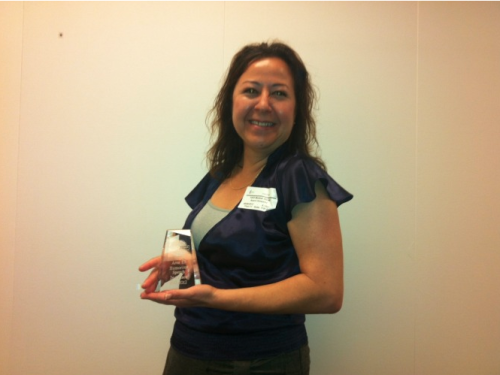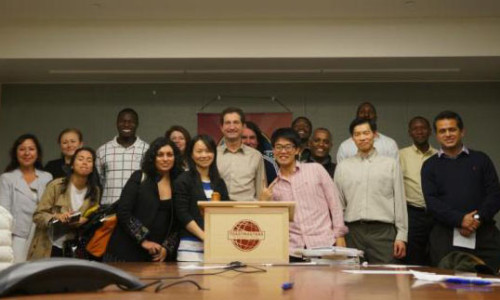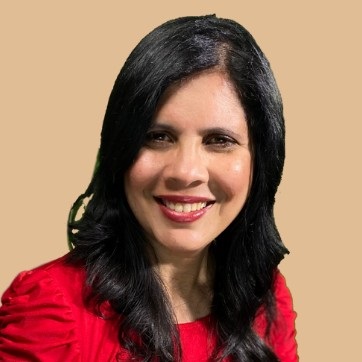I just learned how to ride a bike. It was not easy. Learning to ride a bike at any age can be frightening. Doing it at my age, which sits snuggly right between 24 and 64, was rather daunting. The thought of falling, breaking my bones and, perish the thought, of something happening to my teeth made me simply queasy. But I couldn’t resist the lure of rolling and breathtaking bike trails or of the wind blowing through my hair as I whizzed down a windy road with a view of the San Francisco Bay ahead, a glorious finish line to my daring race. But most of all, I couldn’t quiet down that relentless inner voice, which won’t allow me to sit things out because of fear. I methodically took the necessary steps to begin this journey. I’ve learned to face fears and wild new adventures with a sensible plan.
My plan began with Google and five simple search words, “How to Ride a Bike”. Then, I visualized falling and accepted this as an inevitable part of not just learning to ride a bike but of being a rider – there will be some risk, undoubtedly some falls and definitely a lot of pain. I also recruited the best and most enthusiastic bike rider I know, my friend Brenda. As a great project manager, she knows all about having a plan, executing it, measuring success and making adjustments on the go. But, equally important, she was a genius at knowing when to push and when to just let me find my balance and speed. Brenda was a key factor to my success.
Then on my fifth day out, as I was cruising down a slope on the Great Highway, with the beautiful Pacific ocean on my left, the sea breeze blowing through my hair, and with bruised knees and an achy shoulder, I thought how learning to ride a bike was not much different from facing life-defining challenges. I’d done it many times before and I had learned that to succeed in any journey you need more than a plan, you need a network of experienced, well-meaning people around you. This was true when I moved to San Francisco to begin a new career as a freelance Spanish interpreter and translator. I was alone and without a support network – my wildly beating heart my sole companion. I knew I had some falls ahead, but I found my impetus in the promise of pursuing a dream of professional independence, of exploring new horizons and of overcoming the self-imposed limitations expats sometimes place on ourselves.
For this particular journey, I needed to hone my public and interpersonal communication skills, develop a new personal and professional network and polish even more the professional image I had groomed thus far. Joining Upwardly Global Toastmasters, a Toastmasters International club, was a crucial step in this plan. I chose Upwardly Global Toastmasters over other equally wonderful Toastmasters International clubs because in it I found a sense of kinship. Members come from different backgrounds and from countries in Africa, Europe, Asia, Latin America and, yes, the US, and most are at different levels of adaptation to American culture, the city’s job market, a new university, etc. The professional woman you see now is the result of years of acculturation and I see a little bit of the challenges I faced in the challenges each of our members is currently undertaking. This deep understanding is at the root of our club’s success; those who have been there give advice to the ones who are just undergoing the process while at the same time benefitting from the many rewards of being a mentor.
Here are the top four benefits of joining:
1. Find your voice, if you haven’t done so already, and let it ring. Toastmasters International provides a robust but simple public speaking program. Members practice public speaking in a nurturing environment, where they give and receive positive feedback, encouragement and mentoring.
2. Gain the leadership skills that translate into success in America’s corporate world. Practice your listening and time management abilities, learn how to give constructive and well-delivered on the spot feedback, organize and lead meetings, and develop many other crucial skills that will help you connect and advance.
3. By working on the two earlier aspects of your personal and professional growth, you will develop a strong, well-defined and consistent message about who you are and what you do. This will guide you skillfully through job interviews, while networking and, maybe more importantly, as you grow and nurture a new group of friends.
4. Upwardly Global Toastmasters represents on a smaller scale the diversity that typifies the San Francisco Bay Area. Many of us hold in common our foreignness and our drive to adapt to our current environment, but we are also diverse in culture, language, professional field and perspective. Diversity is one of our strengths. We thrive in it and harness it to provide each of our members a forum to learn from others on a personal and professional level.
Join Toastmasters and leverage your strengths against the challenges you may encounter so that you may shine as you were always meant to.
Noemi Gonzalez comes from a numerous and spontaneous Mexican family, from which she learned to be über resourceful. In 2011, Noemi decided to leave a corporation for which she had worked for several years to explore new horizons and a career as an Independent Spanish/English Translator and Interpreter in the San Francisco Bay Area. In addition to her work as a linguist, Noemi serves as President of Upwardly Global Toastmasters.
www.asimpletranslation.




